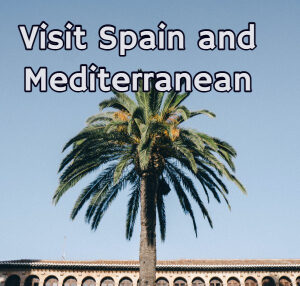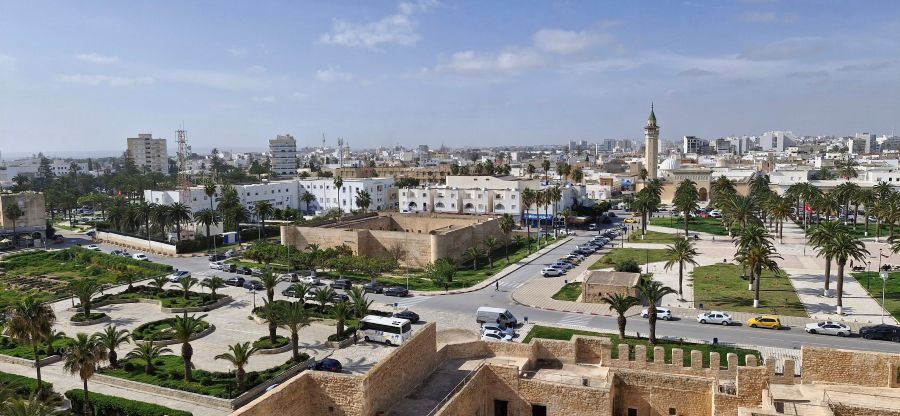Is Tunisia Safe to visit
In this post, we share information about travel to Tunisia and answer if Tunisia is a safe place to visit. Generally Tunisia is fairly safe if you stay to the main tourist attractions and places of interest. If you intend to travel to lesser known and not so touristed locations, then you have to be more careful or have a guide or operator to show you around to more remote places.
In general travel to the country and the main capital city is relatively safe with some precautions in mind for traveling solo in a group or taking a group led tour. I personally believe that group tours are a safer way to explore and leave the logistics and driving to local experts and details some of the available tours for you to consider below.
We answer all the questions you might have in mind while planning a tour to this fascinating country that isn’t as well visited in Northern Africa.
A guide to safety and travel guide exploring Tunisia, visiting historic sites, group tours and touring tips
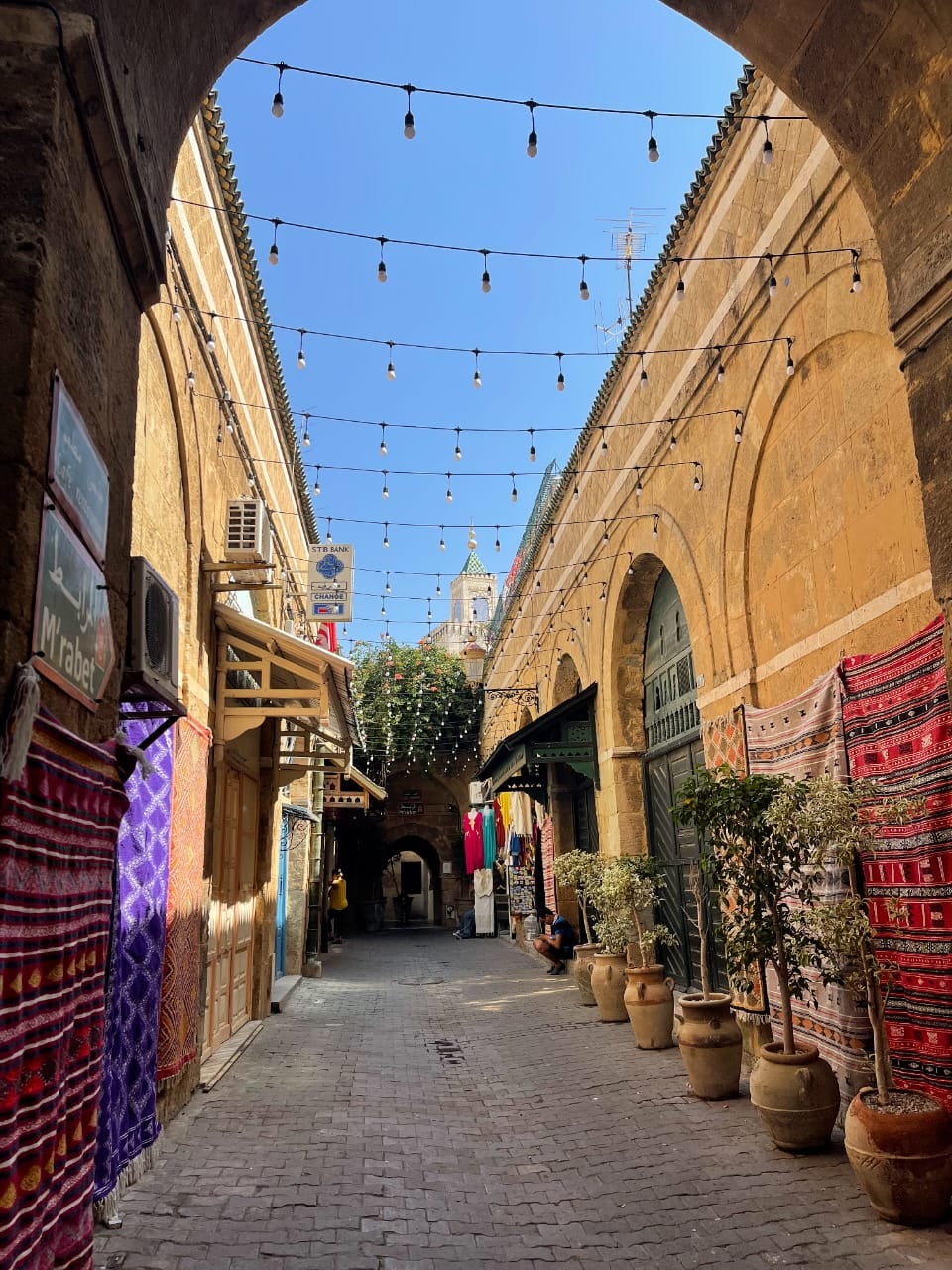
Tunisia is one of North Africa’s most open and accessible countries
The country is a blend of Berber, Arab, French and Mediterranean peoples with a blend of traditions, foods and openness
Diverse language
The main language of the country is Tunisian Arabic but also widely spoken is French along with knowledge of English and German tourists to the area.
Independent Travel
Generally independent travel is acceptable even for solo female travel is allowed and relatively safe in the various cities, coastal areas and other tourist attractions around the country.
Taking a group tour is also easy with day trips from the capital city of Tunis and other multi-day trips to the area. When the group is a lead by a tour person and driver with pre-arranged tourist visits, local guides and places to stay, this is an extra buffer traveling in a group situation versus planning everything separately and not having the experience to vet the various destinations you plan on visiting.
Cultural Etiquette to visiting Tunisia
Tunisia is a more conservative country and Muslim religion, modest dress is required especially for women to cover shoulders and legs. Men should avoid shorts and tank tops at important religious sites and important landmarks
I. General Overview
- Tunisia is a North African country with a rich mix of Arab, Berber, and French influences.
- The culture is predominantly Muslim, but Tunisians are known for being moderate, hospitable, and open-minded.
- Respect for tradition, family, and community is central to social life.
II. Greetings & Social Interaction
A. Common Greetings
- Handshakes are common between men; men and women may greet verbally or with a nod, depending on comfort level.
- A polite Arabic greeting: “As-salaam alaykum” (“Peace be upon you”) → response: “Wa alaykum as-salaam.”
- Use right hand for handshakes, giving items, and eating.
B. Addressing People
- Use titles (e.g., Monsieur, Madame, Sidi, Lalla) until invited to use first names.
- Elderly people are treated with special respect — greet them first.
III. Dress Code
A. In Public
- Tunisia is relatively liberal, but modesty is appreciated.
- Men: Long pants, shirts with sleeves.
- Women: Avoid low-cut tops, short skirts, or tight clothing, especially outside tourist areas.
B. Religious Sites
- Dress conservatively: arms and legs covered, women should bring a scarf to cover head if needed.
- Remove shoes before entering a mosque.
IV. Behavior & Manners
A. In Public
- Avoid public displays of affection.
- Do not criticize religion or politics.
- Showing anger or shouting in public is frowned upon.
B. In Homes
- Always remove shoes when entering.
- Bring a small gift (pastries, nuts, or flowers) if invited to someone’s home.
- Wait to be shown where to sit.
- Meals are often shared — eat with the right hand only.
V. Dining Etiquette
- Meals may be communal, often from a shared plate.
- It’s polite to try a bit of everything offered.
- Wait for the host to begin eating.
- Saying “Bismillah” (In the name of God) before eating and “Alhamdulillah” (Praise be to God) after is appreciated.
VI. Religion & Ramadan
- During Ramadan (month of fasting):
- Muslims do not eat, drink, or smoke from sunrise to sunset.
- Visitors should avoid eating or drinking in public during daylight hours.
- Many restaurants may have limited hours.
- Greet with “Ramadan Kareem” (“Have a generous Ramadan”) if appropriate.
VII. Gender Norms
- Tunisia is relatively progressive, but gender boundaries still exist in rural or traditional areas.
- Casual interactions between unrelated men and women may be limited in conservative contexts.
- Women travelers are generally safe but should dress modestly and avoid overly familiar behavior with strangers.
VIII. Photography
- Always ask permission before photographing people, especially women.
- Avoid taking photos of military, police, or government buildings.
IX. Business Etiquette
- Punctuality is valued, but meetings may begin late.
- Start conversations with small talk — avoid jumping straight to business.
- Exchanging business cards is common; offer with right hand.
X. Gifts & Hospitality
- Hospitality is a key value — refusing food or drink may seem impolite.
- It’s common for hosts to insist several times, and guests to politely decline once or twice before accepting.
- Gifts should be modest and nicely presented, not overly expensive.
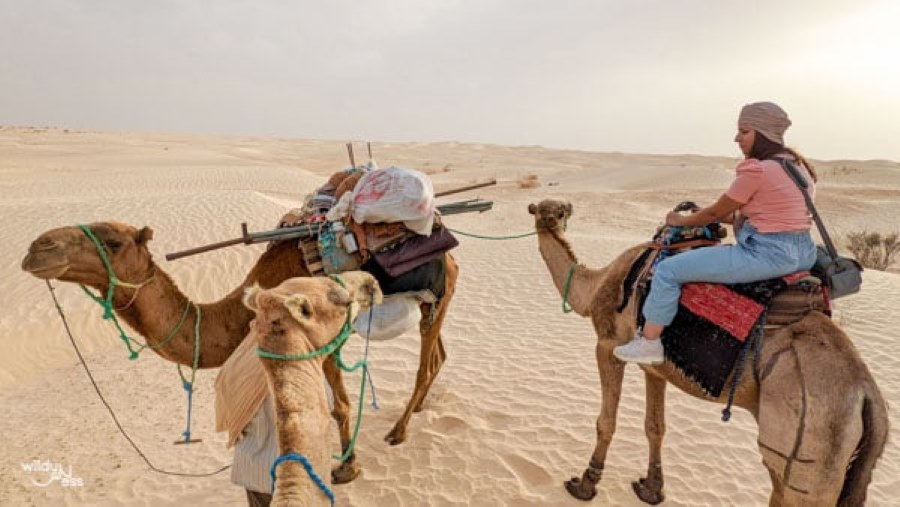
Travel around the country
Getting around Tunisia is fairly straight forward and well connected cities and even more rural areas. Travel is relatively safe and affordable and here are the main ways of travel around the country
Travel by trains or buses
Train travel is safe, inexpensive and reliable. Bus travel is also a good way to travel intercity and reaching places away from the capital city.
Taxi service
Easy taxi service is available around the many cities. You can ask the driver to use the meter or agree to a price fare in advance before you leave and enter the cab.
Local tour operators
Use local tour groups that have a reputation and reviews and book these after a careful review of the various providers to local or longer multi-day tours. We provide some of the exciting tour experiences around the country below.
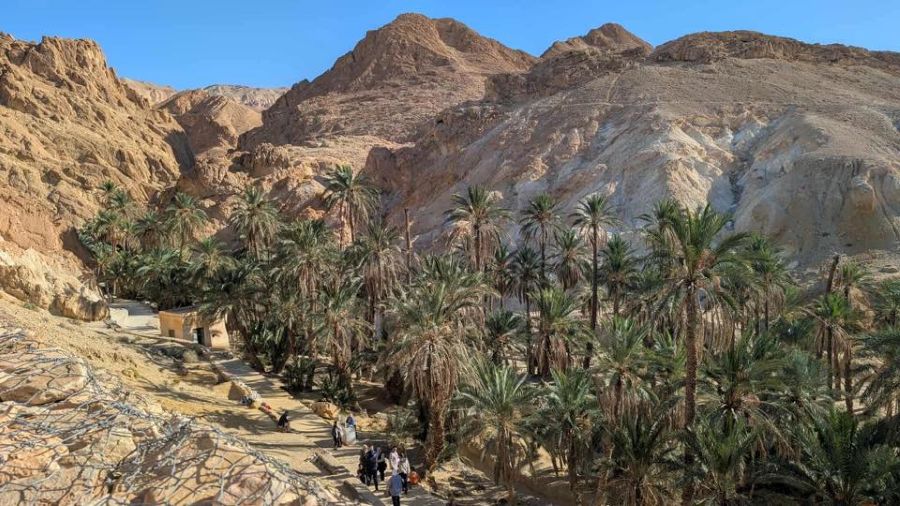
Consider these group tours around Tunisia
As I mentioned earlier group tours add a layer of safety by traveling in a smaller group typically with a leader and guide and relationships with local guides, tourist destinations and hotel stays and places to eat. Consider these group tours to popular attractions to visit in the area.
Tozeur: Chebika, Tamaghza, Mides & Sahara Star Wars Day Trip
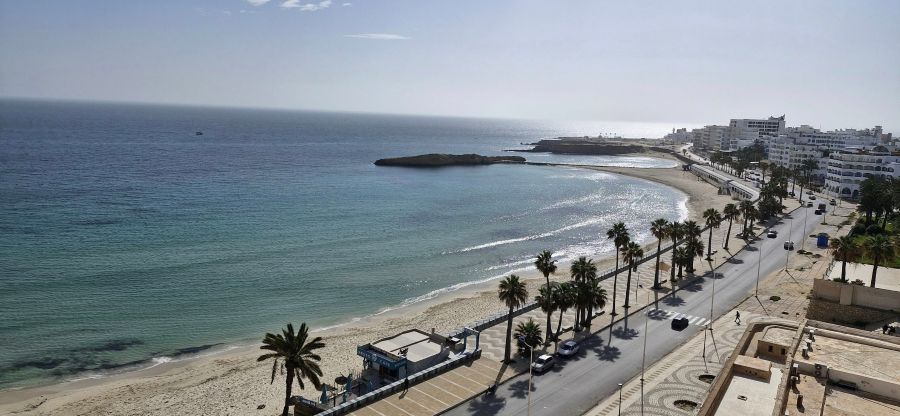
More tips to visiting Tunisia and keeping safe
Here are some helpful safety tips when visiting Tunisia:
- Stay updated on travel advisories
Check your government’s latest guidance before and during your trip, especially regarding border areas. - Stick to well-traveled zones
Major cities, heritage sites, and coastal resorts have strong tourism infrastructure and security presence. - Choose reliable transportation
Use official taxis or reputable ride apps when possible; agree on fares ahead of time if meters aren’t used. - Guard your belongings
Pickpocketing can occur in crowded souks, train stations, and busy streets—keep bags zipped and valuables out of sight. - Dress with local norms in mind
Wearing modest clothing helps you blend in and avoid unwanted attention, especially in more conservative towns. - Limit late-night wandering
Enjoy nightlife, but stay in busy, well-lit areas and arrange transport back to your accommodation. - Be cautious with cash and ATMs
Use ATMs inside banks or hotels and avoid showing large amounts of money when paying for things. - Respect photography rules
Avoid taking photos of government buildings, military zones, or security personnel. - Stay mindful during political gatherings
If you come across protests or large demonstrations, keep your distance and move along calmly. - Carry a copy of your passport
Leave the original in a safe place and keep a digital backup just in case. - Learn a few basic French or Arabic phrases
This helps with communication and builds positive interactions with locals. - Avoid leaving valuable items unattended anywhere especially in public places
- Be cautious about accepting tours or services from unofficial guides, who may demand large sum of payment later
- Stay alert in crowded areas and when using public transport
- Consider booking with local tour operators – this is an easier and safer alternative to exploring the country on your own and not really knowing all the local conditions or logistics to getting around
The truth: No destination is risk-free, but Tunisia is far from dangerous. Like anywhere, travel smart and stay aware of your surroundings and cultural visiting requirements.
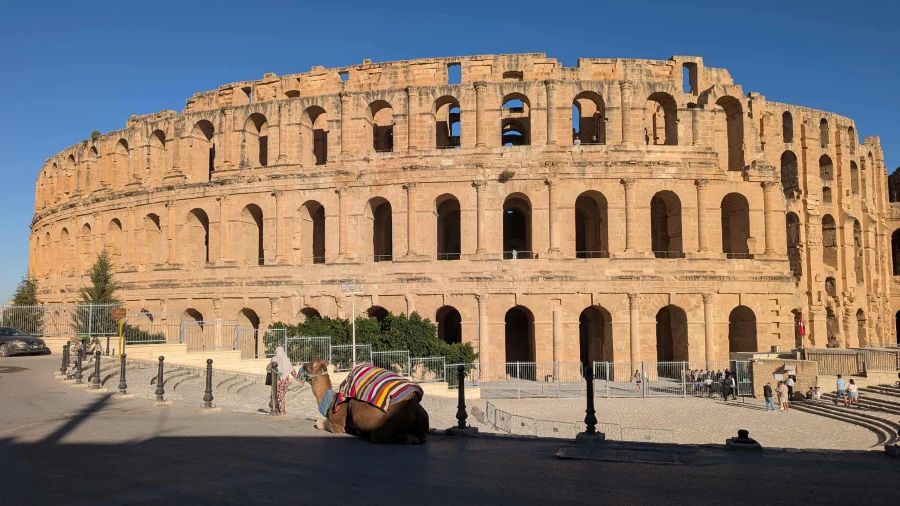
Further Reading – Visiting Tunisia
Conclusion on Safety to exploring Tunisia
Overall, Tunisia remains a generally safe place to visit for most travelers, especially if you stay aware of your surroundings and follow local advice. Tourism areas, major cities, and coastal resorts are well-patrolled, but like anywhere, petty theft can happen in crowded spots. Political situations and border regions near Libya or Algeria can be more unpredictable, so it’s smart to avoid those areas and check current travel advisories before you go. With a bit of common-sense planning, you’ll find a country full of culture, history, and friendly hospitality waiting to be explored with confidence.
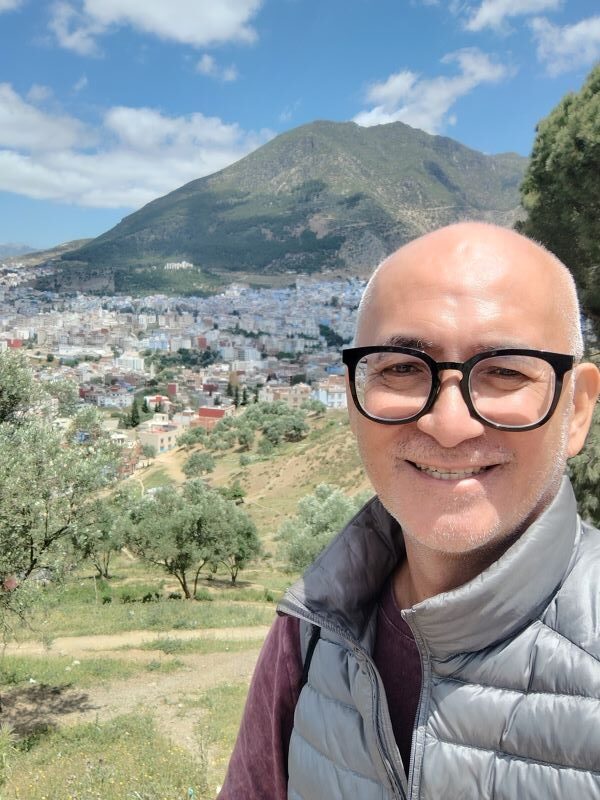
About author – Noel Morata
After relocating from the United States to Andalusia in 2018, I’ve made it my mission to discover every corner of Spain. Based just east of Granada, I’ve spent over 12 months exploring Málaga province, visiting each attraction featured in this guide multiple times across different seasons. My background in Spanish cultural studies and five years of residence in southern Spain have given me unique insights into the region’s historical significance and local customs. I regularly update my guides with the latest information gathered through personal visits and relationships with local tourism officials and finding out what’s new and exciting to visit in each destination.
I’m enjoying exploring more unique countries in the Mediterranean areas like Tunisia and cover the main attractions, logistics, foods and general safety and tips.
Disclosure – some of the links above to various tours, transportation and hotels are affiliate links that benefits our site if you book here and we appreciate your support. The links are competitive, and you are not paying above what other affiliates provide.
